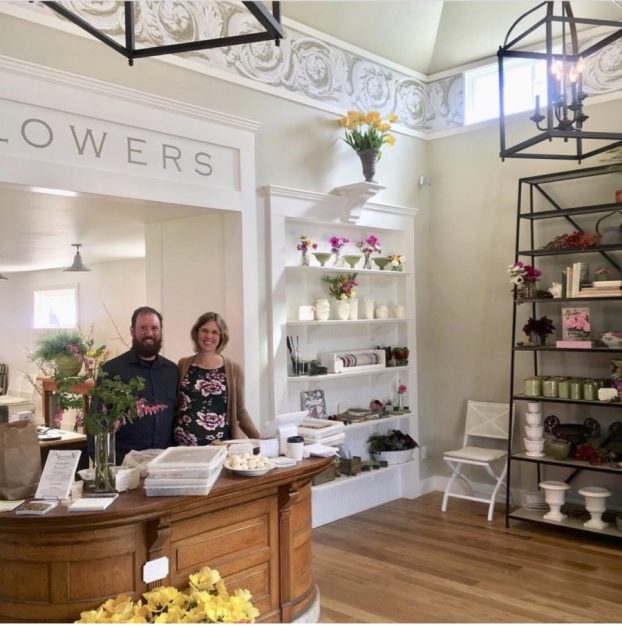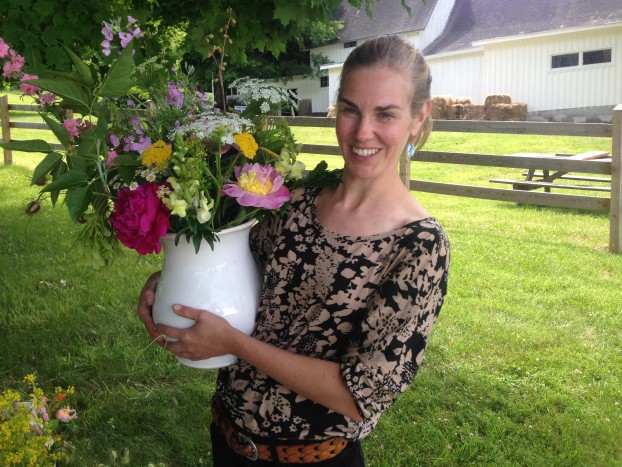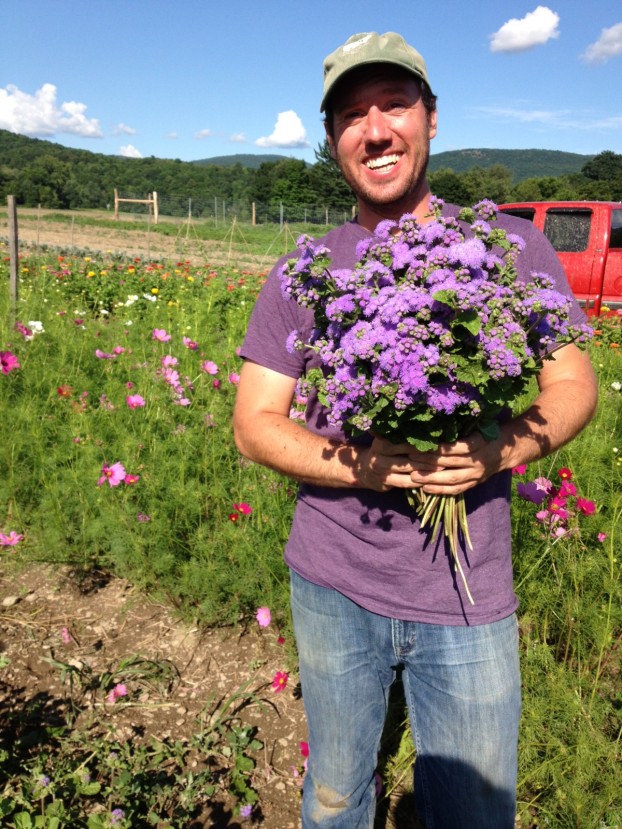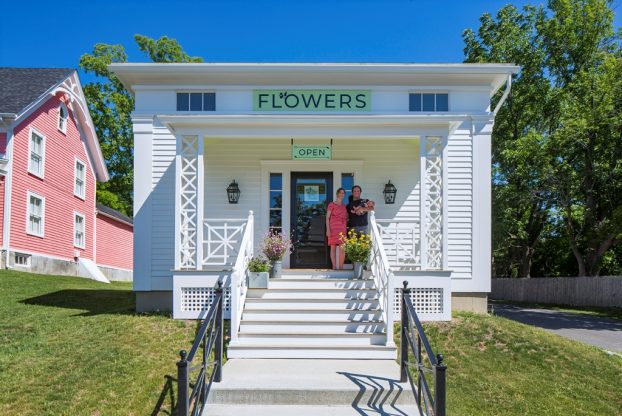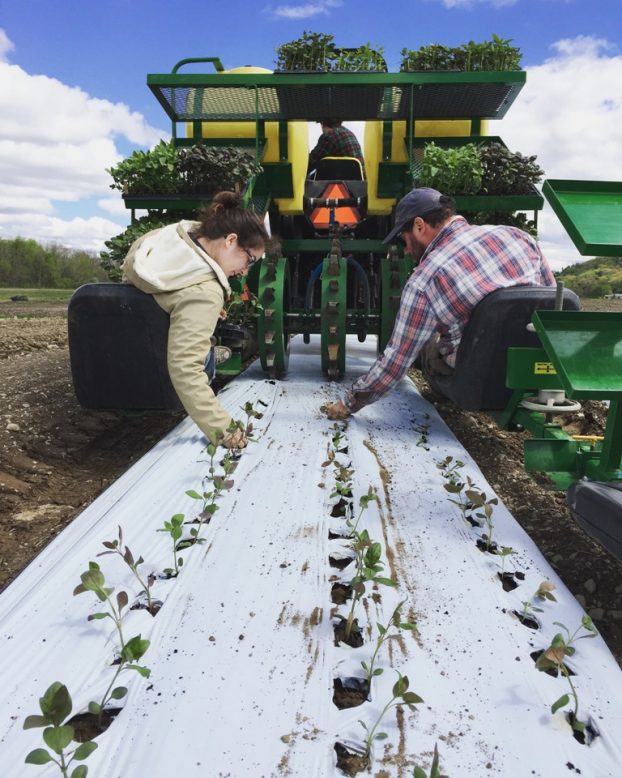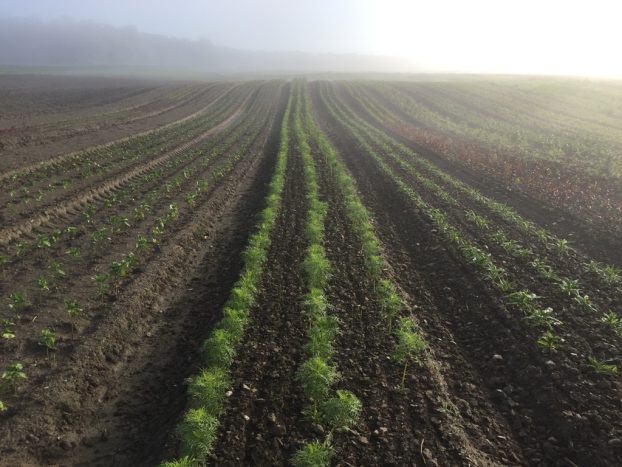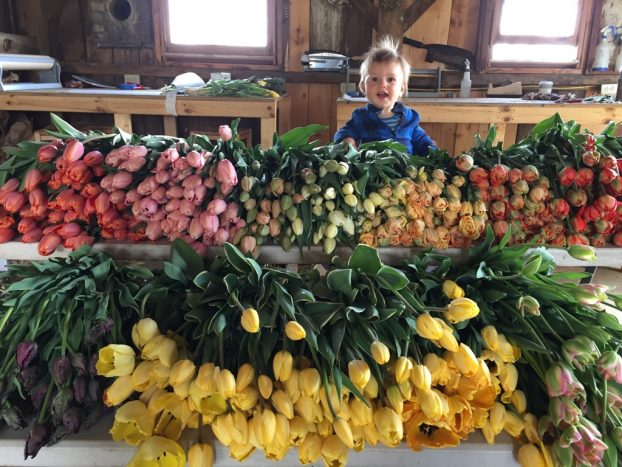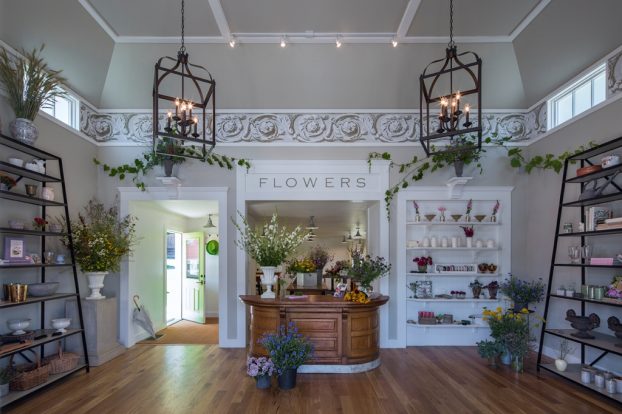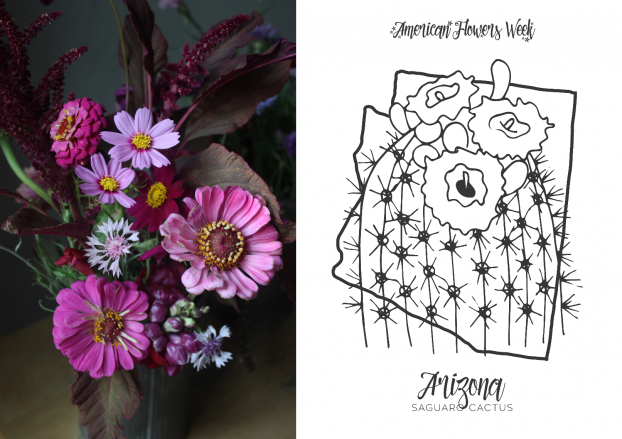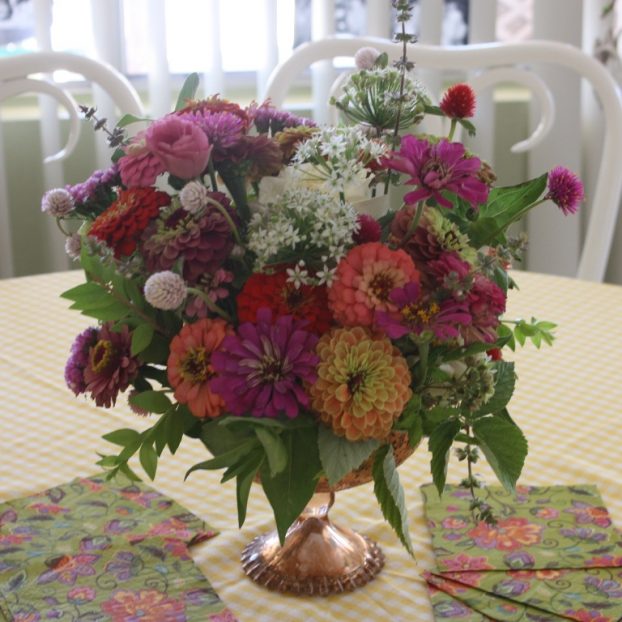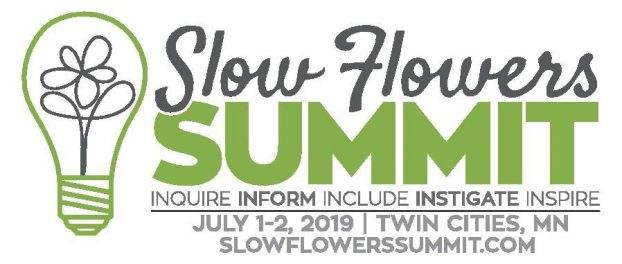Podcast: Play in new window | Download
Subscribe: Apple Podcasts | Podcast Index | RSS | More
Our featured guests today are back for a second time — and I always love inviting past guests to the Slow Flowers Podcast so you can hear their “next chapter.”
In April, 2015, I invited Jenny Elliott and Luke Franco of Tiny Hearts Farm, based in Copake, NY, to share their story here. In fact, here’s a link to that conversation, Episode 189.
A lot has happened in the subsequent three years, which makes me want to ask: Is a flower farmers’ three years more like 30 years for the rest of us? Seriously, what Jenny and Luke have accomplished is inspiring and I know it will be instructive to wherever you are today.
I first learned of Tiny Hearts from famed garden writer and podcaster Margaret Roach (you may recall that she was gardening editor and eventually editorial director for MSL back in its true heyday).
Margaret had recently invited me to be a guest on her popular gardening podcast, A Way to Garden,” to talk about Slow Flowers.
She immediately and proudly shared that her own small Hudson Valley community a few hours north of NYC was home to a new specialty cut flower farm, Tiny Hearts.
It was so nice to have the “a ha” connection already made for Margaret, thanks to Jenny and Luke’s involvement in the local agriculture community of Copake.
I later got to meet Jenny in person at a Slow Flowers Hudson Valley Meet-Up. What a wonderful experience to continue the conversation — and having Tiny Hearts join the Slow Flowers community was a bonus for me, even though we mostly kept in touch via social media.
It was through Social Media that I learned of Luke and Jenny’s more recent news for 2018 — the birth of their second child and the birth of a new floral venture. You’ll hear all about it in today’s episode. Here’s a little more about Jenny and Luke, in a bio excerpted from their web site’s “About” page:
Jenny Elliott and Luke Franco started what would become Tiny Hearts Farm in the late winter of 2011, when they were offered an acre of land in Westchester County, New York, to grow on. Jenny had been farming vegetables for four or five years at this point, after getting a Masters in musicology and wondering what to do with it. Luke was (and still is) working as a jazz guitarist.
The land belonged to Dick Button, the Olympic figure-skating gold medalist, and Jenny is a winter Olympics fanatic, so it was clearly a good idea to start a farm there, even though they didn’t own so much as a shovel.
The first few years had its challenges—lack of water, fencing, equipment, and housing, being among them—but they were able to start a small, organically managed, hand-scale vegetable and flower farm and saw a measure of success. Jenny and Luke quickly found a niche and love for the flowers and they switched to growing flowers exclusively by their third year, the same year it became clear that they were quickly outgrowing their little farm. To grow the variety and quality of flowers sustainably that they envisioned, more space and better farm infrastructure was needed.
In the spring of 2014 Tiny Hearts moved an hour and a half north to become part of the new Copake Agricultural Center. The move offered a lifetime lease on 15 acres (a big deal for flower farms—many perennials are expensive to install and take years to establish), a house on the edge of the field, a barn for packing out orders, and four neighboring farms who quickly became the best support system. During their first two years here, Jenny and Luke invested in much-needed infrastructure—a greenhouse, walk-in cooler, two tractors, and delivery vans. They now work with a team of four to six employees, all passionate about flowers and invested in becoming great farmers and designers.
They say this: “We’re committed to our organic practices, to our staff and neighbors, to our community of customers, and to finding flowers that make us all happy and excited about the botanical world. As our farm grows, our goal is to become better and better growers of high-quality, healthy-for-the-land, healthy-for-people flowers.”
Here’s how to find and follow Tiny Hearts Farm at its social places:
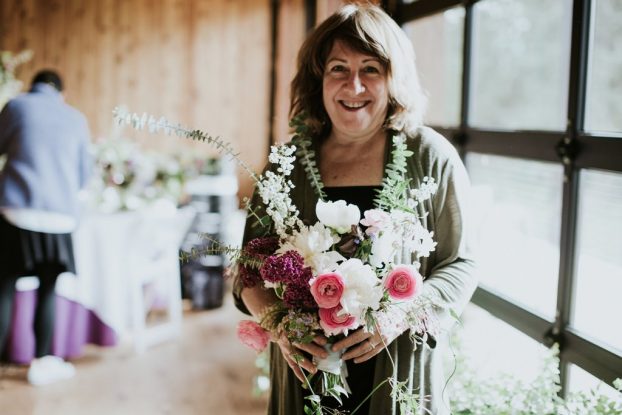
Debby Mittelman of MiViva Designs, photographed by Sullivan & Sullivan at the 2017 Whidbey Flower Workshop
Our theme for 2019 – Fifty States of Slow Flowers – continues today, with Debby Mittelman of MiViva Designs, a custom floral design and photography studio in the Phoenix area — who shares an Arizona floral spotlight.
Here’s how to find and follow Debbie at her social places.
Thanks so much for joining me on this Slow Flowers journey, seeking new and inspiring voices, people with passion, heart, commitment and expertise to share with you. I hope today’s episode gave you at least one inspiring insight or tip to apply to your floral enterprise. What you gain will be multiplied as you pay it forward and help someone else.
The Slow Flowers Summit is six months away so please save three dates on your calendar as you plan your travel to St. Paul Minnesota:
Sunday, June 30th: Bonus flower farm tours and the Slow Flowers Dinner on the Farm
Monday, July 1st: The main converence at Paikka Event Space
Tuesday, July 2nd: Twin Cities Flower Exchange tour and presentation.
I can’t wait to see you there! Ticket sales continue with a special Slow Flowers member discount at $375, so please make your way to slowflowerssummit.com to learn all about the many opportunities to join us — from flower farm tours and dinner on a flower farm to business and branding presentations to interactive and inspiring design sessions . . . all designed to serve you!
Sign up to receive updates at slowflowerssummit.com.
The Slow Flowers Podcast has been downloaded more than 402,000 times by listeners like you. Yes, this past week we surpassed an epic milestone of more than 400,000 listener downloads!
Thank you for listening, commenting and sharing – it means so much. We have a vital and vibrant community of flower farmers and floral designers who together define the Slow Flowers Movement.
As our cause gains more supporters and more passionate participants who believe in the importance of the American cut flower industry, the momentum is contagious. I know you feel it, too. I value your support and invite you to show your thanks and with a donation to support my ongoing advocacy, education and outreach activities. You can find the donate button in the column to the right.
Thank you to our Sponsors!
Thank you to: Florists’ Review magazine. I’m delighted to serve as Contributing Editor for Slow Flowers Journal, found in the pages of Florists’ Review. It’s the leading trade magazine in the floral industry and the only independent periodical for the retail, wholesale and supplier market. Take advantage of the special subscription offer for members of the Slow Flowers Community
The Seattle Wholesale Growers Market, a farmer-owned cooperative committed to providing the very best the Pacific Northwest has to offer in cut flowers, foliage and plants. The Growers Market’s mission is to foster a vibrant marketplace that sustains local flower farms and provides top-quality products and service to the local floral industry. Visit them at seattlewholesalegrowersmarket.com.
NW Green Panels. Based in Madras, Oregon, NW Green Panels designs and constructs a wide array of wood-framed greenhouses offering versatility, style and durability. Their greenhouses are 100% Oregon-made using twin-wall polycarbonate manufactured in Wisconsin, making NW Green Panel structures a great value for your backyard. The 8×8 foot Modern Slant greenhouse has become the essential hub of my cutting garden. Visit them at NW Green Panels.
Syndicate Sales, an American manufacturer of vases and accessories for the professional florist. Look for the American Flag Icon to find Syndicate’s USA-made products and join the Syndicate Stars loyalty program at syndicatesales.com.
I’m Debra Prinzing, host and producer of the Slow Flowers Podcast. Next week, you’re invited to join me in putting more American grown flowers on the table, one vase at a time. And If you like what you hear, please consider logging onto iTunes and posting a listener review.
The content and opinions expressed here are either mine alone or those of my guests alone, independent of any podcast sponsor or other person, company or organization.
The Slow Flowers Podcast is engineered and edited by Andrew Brenlan. Learn more about his work at soundbodymovement.com.









